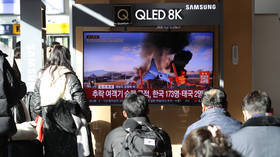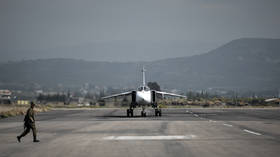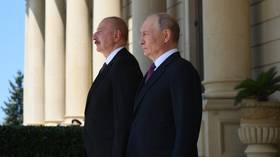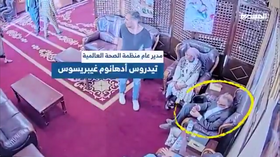Sochi Olympics construction dredging up archeological sites
As Sochi powers forward to bring it's 2014 Olympics on track, the massive construction work throughout the city is also uncovering Russia’s ancient past and it is archaeologists, not athletes, who are racing ahead.
Archeologists are trying to solve the secrets left behind by architects of an 8th century temple.
The ruins in the Imereti lowland of the Caucasus are considered among the most prized discoveries in the area.
“Just take a look how good the pipes are. They almost didn’t break when they fell down. It appears that they were embedded in the walls so that hot air from the fireplace could spread around them. So now we’ll be able to put the pieces back together and see how this heating system worked,” says Anatoly Usachuk from the Archeology Institute of the Russian Academy Of Sciences.
Until last year, the old ruins were covered by a thick layer of rubbish.
They were first discovered by Soviet archeologists in the 1950s, and later lost again for more than half a century.
When the Imereti lowland was chosen as a construction site for future Olympic venues for the Sochi Winter games in 2014, almost every corner was carefully surveyed and that's when this part of history was rediscovered.
Also, a crypt discovered at the site could have been robbed by treasure hunters many centuries ago. And actually, over time, part of this temple was destroyed by local residents, as they used the ancient stones to decorate their homes. Now this site is under guard.
Archeologist Roman Mimokhod from the Archeology Institute says it wasn’t a problem to convince construction companies to save the unique site.
Almost instantly, an agreement was reached to move the engineering facilities that were supposed to be built here.
The funding for the preservation project is fully provided by Olimpstroy, the state corporation in charge of Olympic construction.
“We’d like to turn this site into an open-air museum, to make it accessible for cultural tourism. Moreover, it’s important that it will be inside the Olympic park, which is one of Russia’s vital territories, and it will be visited by people from all over the world,” Roman says.
Smaller findings from the Olympic park, like bronze age artifacts, will be on display in Sochi’s historical museum. Its personnel are preparing for the most significant arrival of new items in decades.
Alla Guseva, who works in the Sochi Historical Museum, reveals that “It’s the first archeological project of such a scale in Sochi. And it’s the Olympic preparations that made the survey possible. Undoubtedly, without archeologists on site, we could have lost these monuments forever, as often happens elsewhere.”
With Olympic construction full-steam ahead, the organizers say they’re doing their best to save the region’s rich historical heritage.
So in 2013, which will be celebrated in Sochi as the Year of Museums, the city may see not only the grand opening of stadiums and ice rinks, but also newly discovered landmarks, like a recently uncovered Christian sanctuary in the Imereti lowland.












